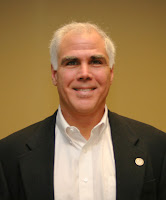 Let me just say once and for all, "Ow!"
Let me just say once and for all, "Ow!"For thirty years I've been saying that every time I get hit with a wayward shot, a slah to my arms, knees or head, or I check some streaking midfielder or goal-hungry attackman. Thirty years is a long time to play lacrosse; my wife thinks it's too long and she's finally convinced me to hang it up and start hanging around on weekends.
 This past weekend I had the bittersweet pleasure of playing in my final championship game with the men of Coopers Lacrosse Team, http://www.cooperslax.com/ beating our arch-rivals Huron Lacrosse team 10-9 in an nail bitter to win the "Everett Smith Cup" one more time.
This past weekend I had the bittersweet pleasure of playing in my final championship game with the men of Coopers Lacrosse Team, http://www.cooperslax.com/ beating our arch-rivals Huron Lacrosse team 10-9 in an nail bitter to win the "Everett Smith Cup" one more time.I've played with Coopers Lacrosse Team for the last twenty seasons. No kidding: twenty seasons! Over those 20 seasons with Coopers I've sustained inestimable ankle blow-outs, knee surgeries, fractured ribs, broken collarbones, broken wrists, and assorted deep purple bruising. I've consumed mountains of Motrin, been encased in ice and have had so many holes repaired in my meniscuses (menisci?) that my surgeon and I have become buddies (of course, he's a lacrosse player as well).
For two decades the same core group of guys has played together through the Northwest Rain, on frozen fields, in hail and on occasional sunny days. We really know each other, and more importantly, we really like each other. We've won the championship finals 11 out of the 14 years we've had a championship finals. No team has ever beaten us more than once in the finals.
That's something we can all say with pride. As our ageless captain Tim "Mac" McGarity says, "Coopers is more than a team; we're a bunch of pirates that come together to realize a collective goal on the field of battle."
That is a great analogy, Mac.
Now pass the Motrin.

 Well, it's been a while. For that I apologize. However, given the calamitous nature of this past year's political skullduggery, I should be afforded a modicum of lenience.
Well, it's been a while. For that I apologize. However, given the calamitous nature of this past year's political skullduggery, I should be afforded a modicum of lenience.